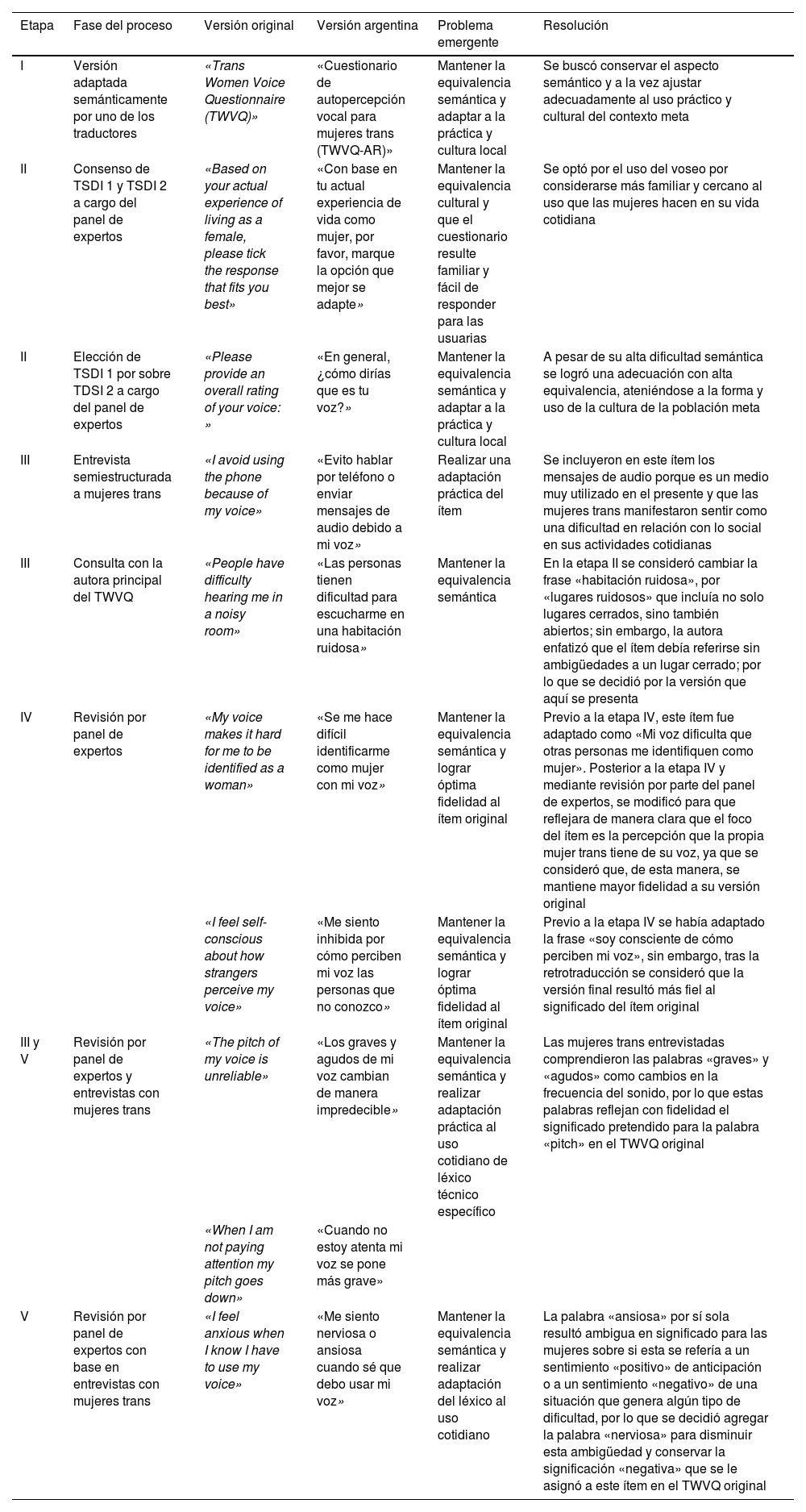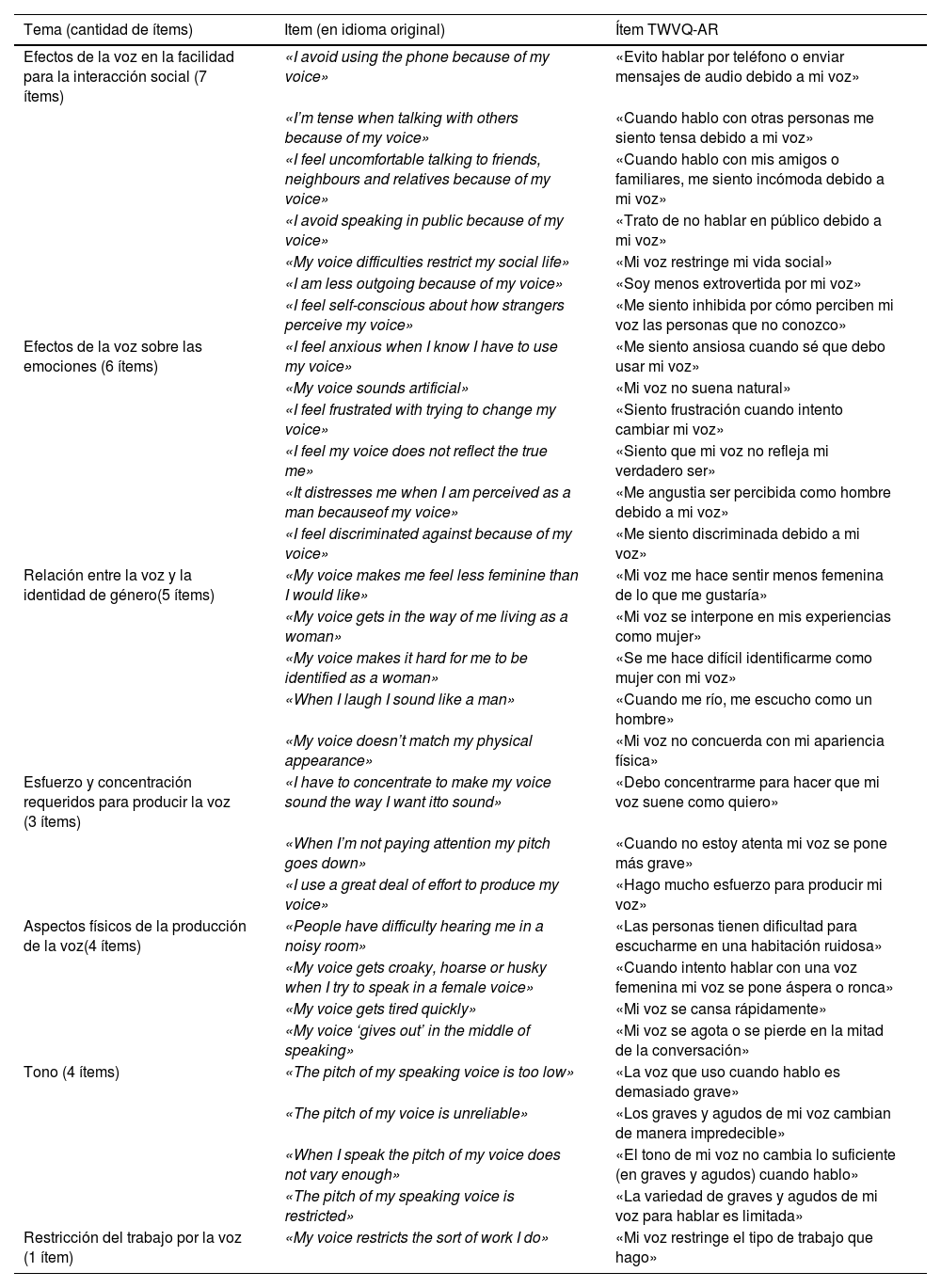En las mujeres trans los aspectos fisiológicos vocales pueden significar limitaciones, generando sentimientos de inadecuación, restringiendo la participación en actividades sociales y afectando su calidad de vida. El Trans Women Voice Questionnaire (TWVQ) fue desarrollado en Australia y Canadá para medir la autopercepción vocal y su impacto en la vida diaria de las mujeres trans.
ObjetivoRealizar la adaptación transcultural del TWVQ y determinar su validez de apariencia, contenido y equivalencia conceptual, práctica y lingüística para valorar la autopercepción de la voz y su impacto en la vida diaria de las mujeres trans de Argentina.
MétodoSe siguió el método recomendado por la Organización Mundial de la Salud (OMS) en cinco etapas: I. Dos traducciones semánticas directas e independientes inglés-español, II. Síntesis de traducciones por panel de expertos, III. Entrevista con panel de tres mujeres trans, IV. Traducción inversa literal español-inglés, V. Pre-test y pruebas cognitivas a seis mujeres trans.
ResultadosA través del proceso se controló que la equivalencia conceptual, práctica y lingüística, así como la comprensión y viabilidad del Versión del TWVQ adaptada para su uso en Argentina (TWVQ-AR) fueran adecuados. Cinco ítems requirieron adaptaciones mayores para lograr la equivalencia semántica en aquellos que midieron el tema «tono», que las participantes interpretaron como variaciones de intensidad del sonido y no de frecuencia.
ConclusiónEl TWVQ-AR resultó en adecuada validez por apariencia y contenido; equivalente al original australiano-canadiense y correcto en el aspecto conceptual, la práctica y la lingüística para mujeres trans de Argentina. Se deben examinar sus propiedades métricas como indicador de calidad de vida relacionada con la voz en esta población.
In trans women, the physiological aspects of their voices that may be different from expected, either by them or other people they interact with, may result in limitations in their daily lives generating feelings of inadequacy, restricting social interaction, and impacting their overall psychosocial well-being.
ObjectiveThe objective was to undertake the transcultural adaptation of the TWVQ and test its face and content validity, as well as its conceptual, practical, and lingüistic equivalence to measure the self-perception of trans women's voices from Argentina and its impact on their daily lives in relation to their health.
MethodThis study followed the World Health Organization guidelines for transcultural adaptations recommended by the author of the original TWVQ Georgia Dacakis. The adaptation underwent five different stages. I – Two forward translations (from English to Spanish from Argentina), II – expert panel revision, III – interview with a group of trans women to test comprehension, IV – two back translations (from Argentinian Spanish back to English), and V – pre-testing and cognitive interviewing with a group of trans women.
ConclusionThe TWVQ-AR is valid in face and content validity as well as in conceptual, practical, and lingüistic equivalence to the original TWVQ to successfully measure the self-perception of trans women's voices from Argentina and its impact on their daily lives in relation to their health.
Artículo
Comprando el artículo el PDF del mismo podrá ser descargado
Precio 19,34 €
Comprar ahora











